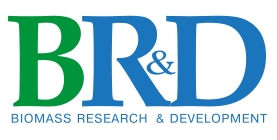
Inaugurated on Sept. 9, 2021, the Sustainable Aviation Fuel Grand Challenge is the result of the U.S. Department of Energy (DOE), the U.S. Department of Transportation (DOT), the U.S. Department of Agriculture (USDA), and other federal government agencies working together to develop a comprehensive strategy for scaling up new technologies to produce sustainable aviation fuels (SAF) on a commercial scale.
The SAF Grand Challenge will guide federal actions to support industry to reduce the cost, enhance the sustainability, and expand the production and use of SAF to meet the following goals:
- A minimum of a 50% reduction in life cycle greenhouse gas (GHG) emissions compared to conventional fuel.
- 3 billion gallons per year of domestic SAF production by 2030.
- At least 35 billion gallons per year of domestic SAF production to satisfy 100% of domestic demand by 2050.
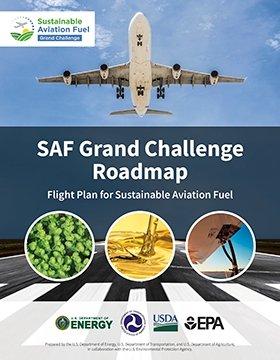 | SAF Grand Challenge RoadmapTo achieve the SAF Grand Challenge goals, the interagency team worked with other government agencies; stakeholders from national labs, universities, non-governmental organizations; and the aviation, agricultural, and energy industries to develop the SAF Grand Challenge Roadmap: Flight Plan for Sustainable Aviation Fuel. The Roadmap outlines a whole-of-government approach to work with and support industry to meet the goals of the SAF Grand Challenge. These goals include aiming to increase emissions reductions; de-risk technology, supply chains, and markets through demonstration, investment, and policy analysis; and reduce barriers that hinder distribution and end use of SAF. |
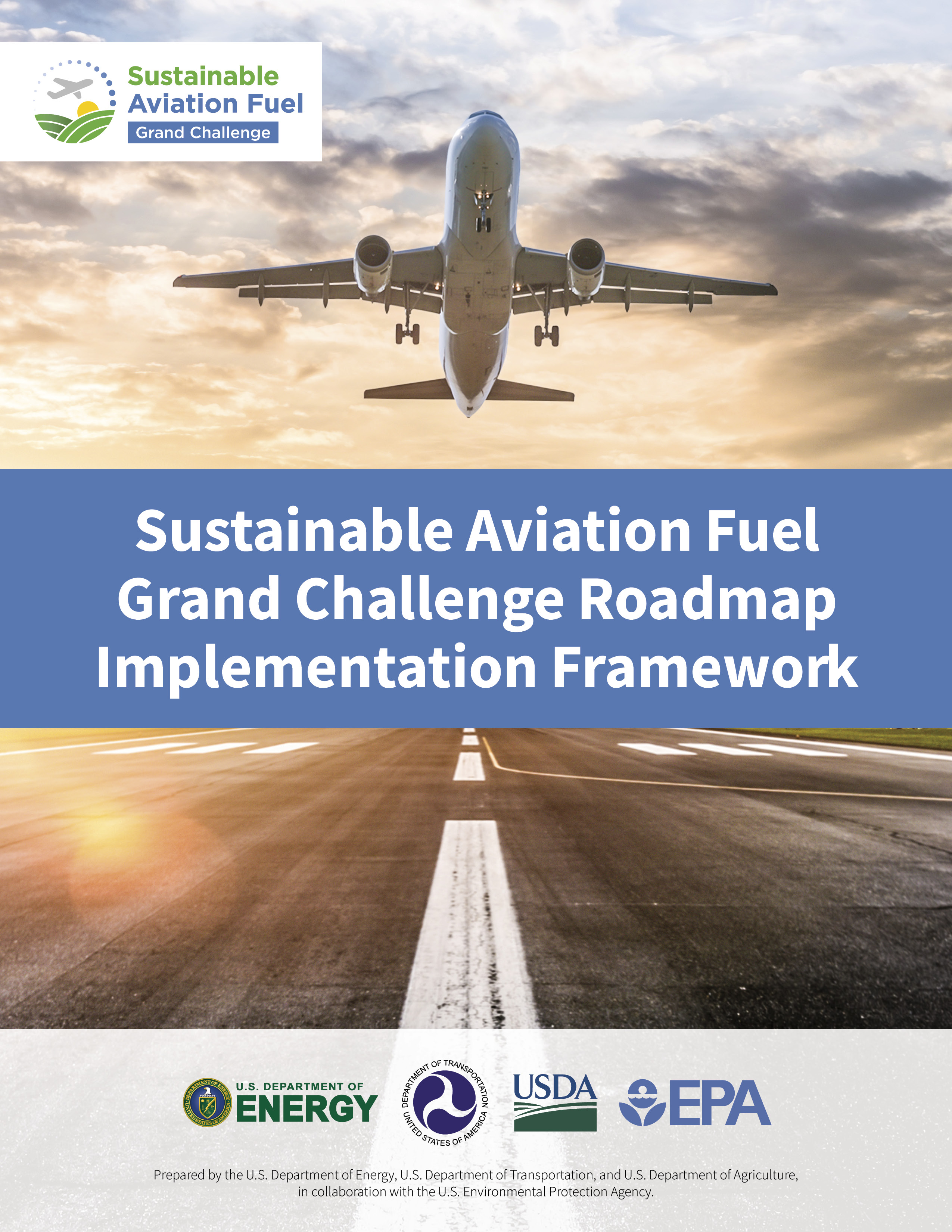 | Sustainable Aviation Fuel Grand Challenge Roadmap Implementation FrameworkThe interagency team released the Sustainable Aviation Fuel Grand Challenge Roadmap Implementation Framework, a supplemental document to the roadmap. This framework provides stakeholders and the public insight into the current efforts of federal agencies to implement roadmap actions. It also identifies gaps in current programs and existing barriers to achieving the SAF Grand Challenge goals. Many of these gaps need to be addressed by SAF stakeholders to meet these goals. Learn more and download the Implementation Framework and fact sheet. |
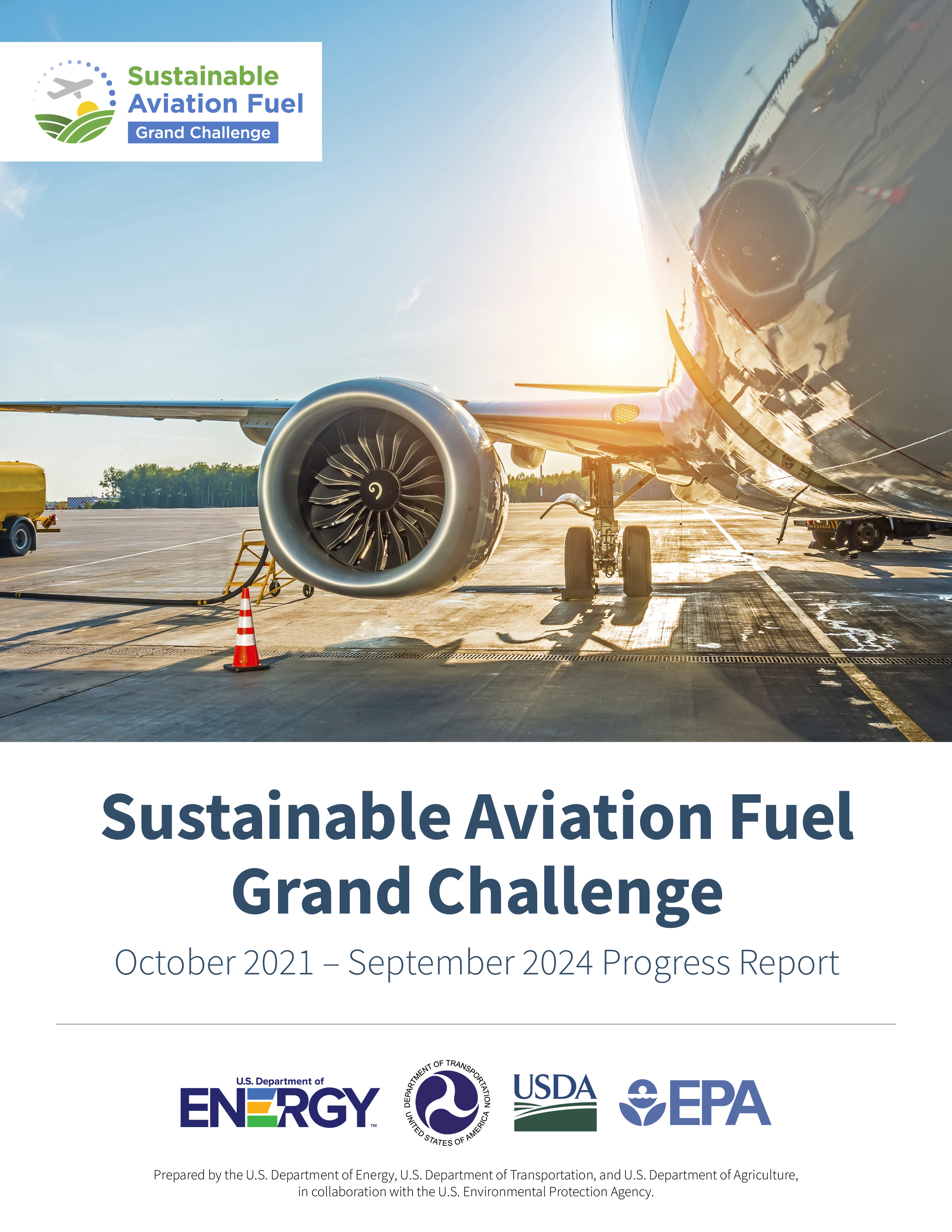 | Sustainable Aviation Fuel Grand Challenge: October 2021–September 2024 Progress ReportThe latest SAF Grand Challenge Progress Report shows the important progress made by federal agencies on accelerating acceptance and growth of SAF as a primary strategy in aviation decarbonization. Progress made supporting the SAF Grand Challenge occurs when federal agencies release new funding opportunities and initiatives aligned with the SAF Grand Challenge Roadmap; provide expertise and technical assistance to industry; increase interagency collaboration; and provide data, modeling, and analysis to decision makers. |
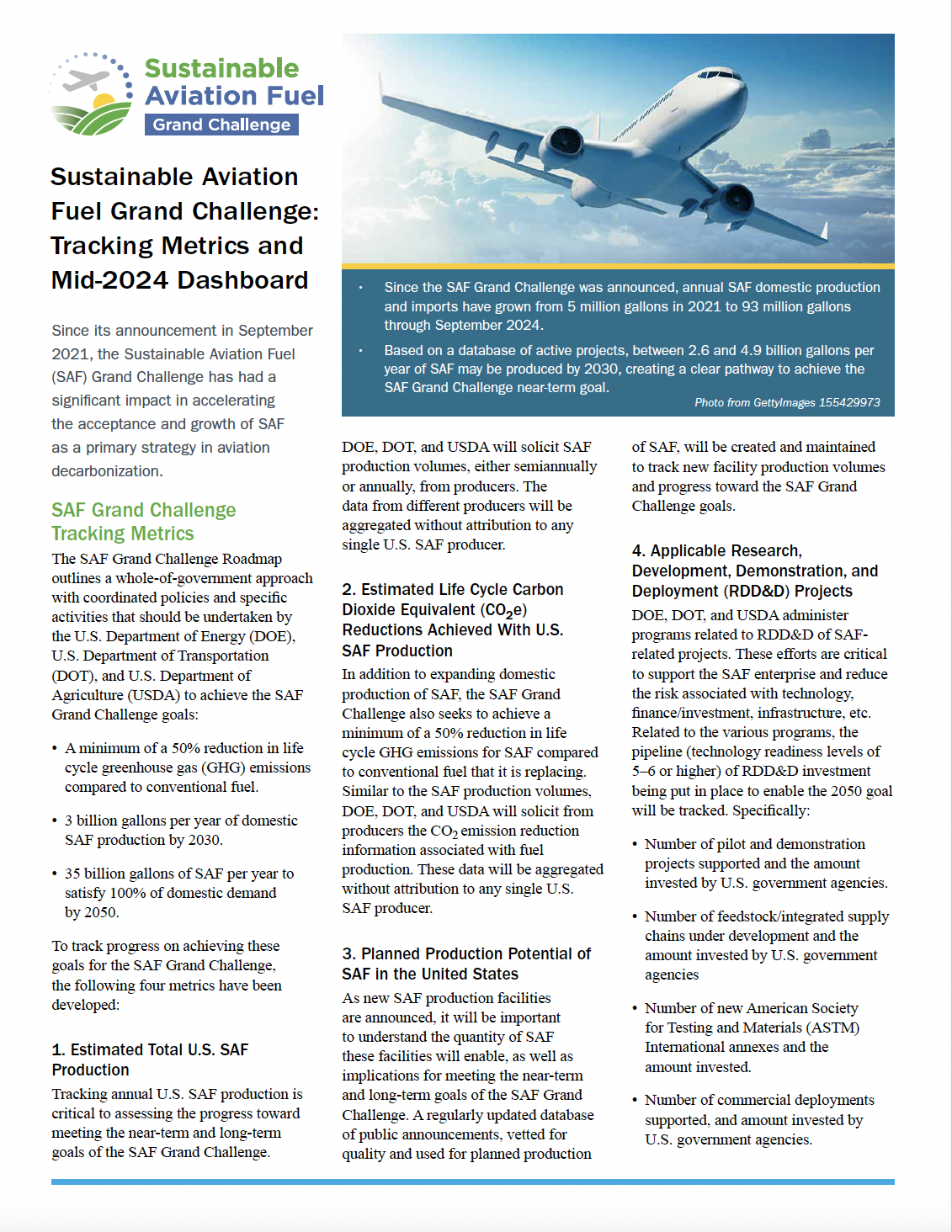 | Sustainable Aviation Fuel Grand Challenge: Tracking Metrics and Mid-2024 DashboardTo track progress on achieving the SAF Grand Challenge goals, the following four metrics have been developed:
|
SAF Grand Challenge Partners
Successful implementation of the SAF Grand Challenge will require close collaboration of agencies across the federal government—particularly DOE, USDA, DOT and its Federal Aviation Administration, and the U.S. Environmental Protection Agency (EPA). Working within the structure of the interagency Biomass Research and Development Board, an interagency working group on SAF has been established to enable coordination with representatives of a broader set of government agencies.
- U.S. Department of Energy: DOE is researching and developing sustainable fuel production technology, providing support for technology scale-up and advancing environmental analysis of SAF. Learn more about DOE’s SAF R&D.
- U.S. Department of Agriculture: USDA is developing feedstock supply chain systems suitable for SAF and supporting commercialization. Learn more about USDA’s role in SAF research.
- U.S. Department of Transportation: DOT has capabilities in fuel qualification, U.S. and international standard-setting, supply chain analysis, and stakeholder outreach. Learn more about DOT’s SAF capabilities.
- U.S. Environmental Protection Agency: EPA is working directly with all three agencies on existing regulations that can support SAF production. Learn more about EPA regulatory approvals for SAF under the Renewable Fuel Standard program.
